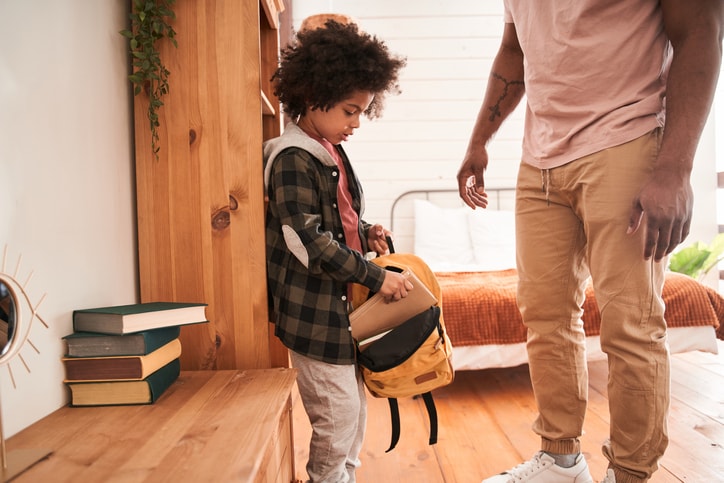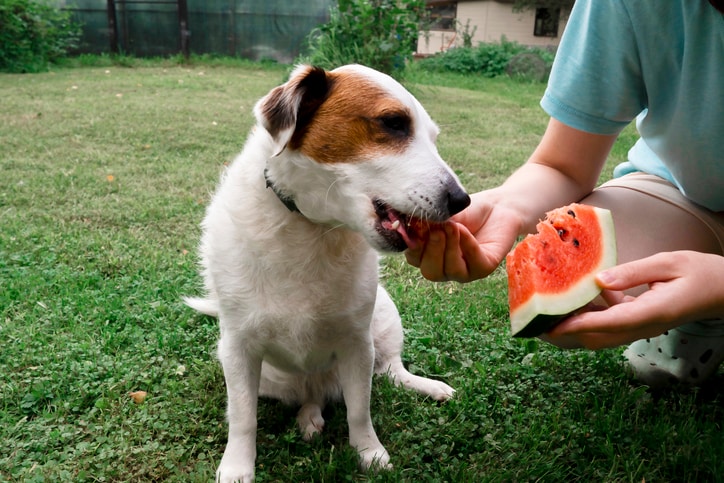Living just a few blocks from our elementary school and working from home, I receive calls fairly often from one of my four kids to bring a forgotten item to school. Lunch, library books and, one time, even a new pair of shoes due to a particularly competitive game at recess that busted a shoe to pieces. Every time that number pops up on my phone, I know I have the option to bail my kids out — or not. The hard part for me and many other parents is deciding when to come to the rescue and when to let kids learn through natural consequences.
“As parents, it’s our job to teach our children problem-solving and coping skills,” says pediatrician Dr. Whitney Casares, a maternal and child health expert and author of the forthcoming “Doing It All.” “That includes setting healthy boundaries and helping them understand that, in the real world, there are consequences for their actions.” At the same time, Casares says kids need to learn there’s room for mistakes in the real world, too.
The world is full of natural consequences, and experiencing those can help teach kids responsibility. Sometimes you forget your library book and can’t get a new one. Sometimes you have to eat the school lunch even if you’d prefer the one you packed and forgot at home. But, sometimes, mom or dad can be there to help, and that’s OK too. So, how do you find the line between helping too much and leaving kids to fend for themselves? Here’s what other parents and parenting experts have to say.
Most parents worry about when to help their kids
It turns out, many parents have an internal debate over helping versus enabling their kids. Amanda Fulton, a mom of two in Omaha, Nebraska, recalls “rescuing” her teen daughter a few times in one day by bringing forgotten items and helping her avoid trouble. “I could, and I did,” Fulton says. “She needed to know that I had her back more than learning ‘not to forget things.’”
The fact that Fulton says she could help that day is key — bailing kids out once in a while isn’t the same thing as dropping everything and running to their aid whenever they ask. Some days, a parent’s workload allows them to run an extra errand, and some days it does not.
“I’ve taken library books, gym clothes and glasses. Honestly, I think it produced a different kind of healthy security. Like, I can do things on my own, but my mom will always help me when and if she can.”
— Stephanie Crow, Pittsburgh mom of two
How you respond to your kids in these situations may also depend on their age. In Pittsburgh, Stephanie Crow is a mom of two adult kids who says that she often helped her kids out of their own messes and foibles when they were young. She sometimes worried about the message it sends, but ultimately decided they needed her support more than a hard lesson.
“I’ve taken library books, gym clothes and glasses,” she adds. “Honestly, I think it produced a different kind of healthy security. Like, I can do things on my own, but my mom will always help me when and if she can. I don’t want my kids to think I could have helped and chosen not to.”
Showing kids they can count on you can create room for other open conversations in the future, too. For example, when kids are at a party without a sober ride, they may remember their parents have a history of showing up for them when it’s important. That trust is built over time between parents and kids, not something that develops as soon as they are partying age.
Of course, teaching kids responsibility and allowing them to learn meaningful life lessons is still important. So, as kids grow, how do we strike that balance between solving problems for them and allowing them to learn from their mistakes? According to the experts, it is possible to do both.
Experts suggest a balanced approach to teaching kids responsibility
Parents should take a good look at what they consider “bailing out” their kids, says marriage and family psychologist Andrew Cuthbert, who is the clinical director of Timber Creek Counseling. What we may see as an unnecessary bail out might be just what some kids need developmentally. He adds, “From a zoomed-out perspective, I guess that ‘bailing kids out’ cuts to the core of one of the biggest questions most parents ask themselves regularly, which is, ‘How do I best support my child’s development?'”
“Sometimes, we can actually help our child’s independence and sense of responsibility by appropriately bailing out our kids, therefore showing them they are loved and supported.”
— Andrew Cuthbert, marriage and family psychologist
Cuthbert says parents should look at the whole picture and find out what is behind the kid’s request for help. “Sometimes, we can actually help our child’s independence and sense of responsibility by appropriately bailing out our kids, therefore showing them they are loved and supported,” he says. Rather than just stepping in and taking over during a difficult situation, use that situation to come alongside your kid and reinforce that their parents will be there to help navigate sticky situations.
“Take into consideration the patterns and the intentions surrounding your child’s actions. If your child forgets to pack their homework in their backpack one time, for example, that’s not a moment to be hard-nosed,” Casares adds. Parents can instead offer the same grace they would expect if they forgot their work bag one day. Mistakes happen, and showing grace in this situation lets kids know no one is expected to be perfect.
“If they forget day after day to grab their assignments, though, that’s a different story,” Casares says. Chronic forgetfulness requires more than a bailout. It requires action, such as working together to set reminders, use a planner and work towards being able to remember assignments on their own each day.
Expert guidelines for teaching kids responsibility
1. Meet your child where they are
Kids learn life skills over time, says Casares. Life circumstances, age, developmental stage and cognitive ability are all key considerations when helping our kids foster independence. What a 5-year-old can handle is not the same as what a 12-year-old can handle, but it’s key to note that two 12-year-olds may also have very different developmental abilities. “What’s most important is that parents are always looking for ways to move their kids toward more responsibility and independence over time,” she says.
2. Teach kids responsibility and independence little by little
See these moments of helping kids as time to build their skills, rather than as a quick fix for an immediate problem, says Cuthbert. “To help a child appropriately gain independence and take responsibility while still being supportive, we can use the concept of scaffolding,” he suggests. This means building in skills layer by layer as kids grow, much like the scaffolding that is set up along a building under construction. Helping kids a lot right now might mean they only need a little bit of assistance the next time a similar problem arises.
3. Practice “I do, we do, you do”
Give your child some role in solving problems, even if they need your help. “Determine two or three areas of independence that would be appropriate for them to develop,” Cuthbert says. Then, he adds, use the concept of “I do, we do, you do” to help kids understand that even when parents are intervening, they still have some steps of their own that they must take to reach the solution. For example, Dad may run a homework folder to school one day, but then the family can create a shared calendar together, and the child can be responsible for checking it each day.
4. Don’t hesitate to seek support
Seek further help if needed, says Casares. If kids are consistently struggling with the same things, there may be an underlying developmental or medical issue. “Your pediatrician can help you determine if your child is struggling with the ability to organize or to focus,” she says. “We can also assist with evaluations for mental health issues like anxiety or depression that often present with a lack of motivation or self-initiation.”
The bottom line
It’s impossible to always make the right choice when it comes to intervening with our kids, but the experts say what really matters is that parents are showing up, listening and being responsive to their children’s needs. “On the one hand, it’s important to be aware and wise about a child’s developmental needs so that you can know when to allow them to work through challenges appropriately,” says Cuthbert.
He also says it is impossible for parents, including himself, to get it right all of the time. “With that understanding, it is crucial to have heaping doses of compassion for both yourself as a parent and for your child,” he concludes. “And yes, with that, it is absolutely okay to bail your kids out at times.”






